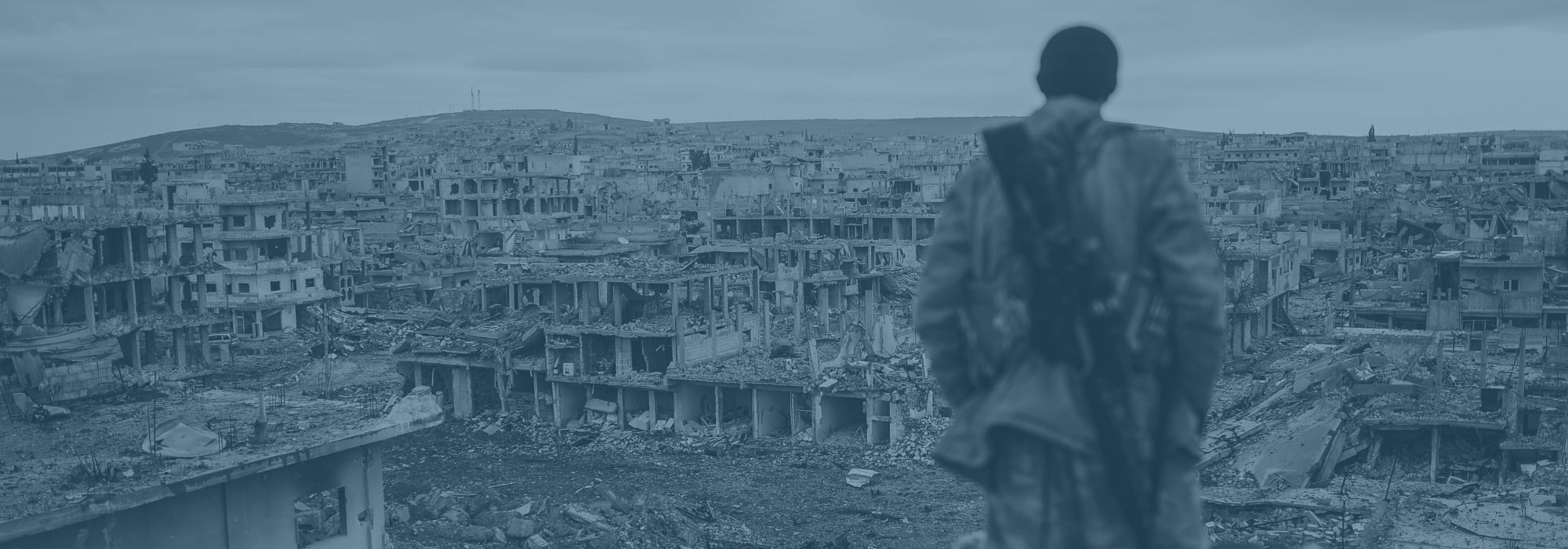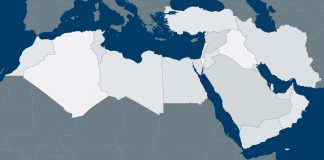By Kamran Bokhari
Russia’s military drawdown from Syria soon after the ceasefire has created a strange sense of optimism in the media regarding peace talks. Any substantive negotiations are years away, at best, since neither side has any reason to seriously negotiate. It is only a matter of time before the truce will collapse. Even when earnest negotiations take place in the future an agreement will long remain elusive, given the geopolitical and sectarian nature of the conflict and the fact that the largely Salafist-jihadist rebels are unlikely to agree on a Western-style political system, which the international community is trying to lead them toward.
U.S. Secretary of State John Kerry said on March 15 that he will meet Russian President Vladimir Putin next week in Moscow to discuss how to seize upon what Kerry described as the best opportunity to end the civil war in Syria. Elsewhere, Salim al-Muslat, a spokesman for the main Syrian opposition alliance in Geneva, said that the opponents of Bashar al-Assad’s regime were not opposed to direct talks with Damascus. He added that the Kremlin’s move to withdraw most of its forces from Syria could help bring an end to the conflict. Separately, the U.N.’s point man on the Syrian conflict termed the Russian withdrawal a significant move toward resolving the conflict.
These statements, which coincide with the fifth anniversary of the Syrian conflict, are terribly optimistic and divorced from reality in the country and the wider region. It is the job of international diplomats and the United Nations to create a sense of optimism about peace. However, expectations about war and peace must be based on realistic assessments and rooted in the imperatives of the various parties to the conflict.
It has been 18 days since the U.S.- and Russia-brokered “cessation of hostilities” went into effect. The most interesting aspect of this truce is that the fighting has been ongoing and there have been claims of serious violations from both pro- and anti-regime elements. Kerry maintains that there has been a significant reduction in the fighting, but it is difficult to tell the extent to which the fighting has decreased. It appears as though both sides realize that they will continue fighting but are not yet ready to declare the end of a truce, which would normally be the case in the wake of violations.
Both sides could benefit from the relative respite as they are exhausted and need to recuperate. That said, neither side has any reason to give up fighting and focus their energies on the negotiating table. As is the case with all conflicts, negotiations and fighting go hand in hand. There is no way for the belligerents to negotiate from a position of strength without relaying the cost of continued warfare.
But this is only relevant if both sides have an interest in a negotiated settlement. In Syria, this is not the case. With the assistance of Russia and its main regional ally, Iran, the Assad regime has gained the upper hand. The regime is also aware that the United States does not want to see it fall and that Moscow actually did a favor for Washington by providing air support to regime forces, who had been unable to make key advances against the rebels since last fall. A confident Assad regime is thus not under any pressure to make concessions.
Conversely, the rebels, having seen their position weakened, also have no incentive to seriously negotiate. It makes no sense for them to negotiate from a position of weakness. They have nothing to bargain and much less to gain. More important, the rebels are far from a coherent entity, given that some 97 groups signed on to the truce and they have their own respective state backers. The degree to which those negotiating in Geneva speak for the ones who are fighting on the ground in Syria is also extremely tenuous.
The reality is that the militias are the ones calling the shots, and they are up against very different pressures than their political representatives. The rebels need to regain the initiative on the battlefield or, at the very least, avoid more territorial losses. They cannot trust that the confident regime will not try to further enhance its position. Indeed, the regime wants to build upon the gains it was able to make with Russian air support.
At the same time, the regime is operating from the assumption that the rebels are going to try and take advantage of the truce to prepare for a comeback. Damascus cannot allow this and knows the best defense is a good offense. Meanwhile, Russia may have withdrawn some military assets, but it will continue to support the regime. Thus, it is only a matter of time before the two sides decide that it is no longer in their interest to even pretend that there is a truce in place.
In other words, we should expect a lot more war before the two sides will be prepared to negotiate. And even when genuine peace talks do take place, it will take a long time for an agreement to emerge. There are a number of factors that will render any agreement elusive for a long time to come. First and foremost is that the regime is not just fighting for political control. The Alawites, who form the core of the regime, and their supporters know that they are fighting an existential battle.
The supporters of the regime know that if they let their guard down they risk massacres at the hands of the rebels, who are driven by either Salafist-jihadist ideas or revenge for the deaths of their loved ones, who number in the hundreds of thousands. Possibly driven by both. No amount of assurances about an agreement can remove this fear from the regime. This is why they cannot make any meaningful concessions. They must assume that if Assad steps down as part of a deal, their position will unravel.
On a higher geopolitical level, the regime’s supporters – Iran and its Arab Shiite allies in Iraq and Lebanon – cannot afford to see a Sunni-dominated polity or even anarchy in Syria. Tehran and the others have worked hard to improve their position in the aftermath of the fall of Saddam Hussein, and they are not about to allow those gains to be reversed. Besides, the Sunni Arab world is in disarray, and Iran and the Shia want to exploit the situation as much as possible. From the Saudis’ point of view, they know that time is not on their side and they are trying to weaken Iran and its Shiite allies before the Sunni world deteriorates further. Syria is an opportunity to deliver a critical blow to the Iranians – an opportunity from which they are unlikely to back down. Likewise, Turkey needs to ensure that neither Kurds nor jihadists in Syria threaten its security.
Given these competing interests, it is very difficult to see how there can be meaningful talks. Even if these massive sectarian differences can somehow be overcome, the international community is still trying to achieve a peace agreement by encouraging a Western-style political system with the expectation that it can accommodate the incumbent regime as well as its opponents. Here again it is unlikely that a single-party albeit secular authoritarian regime will be able to share power. Likewise, the rebels are mostly Salafist-jihadists, who oppose Western-style governance and seek caliphates or emirates.
It has been five years since the war began. And given the situation on the ground, it is quite possible that the war may go on for another half a decade. The road to peace is a very long one.







 The Geopolitics of the American President
The Geopolitics of the American President